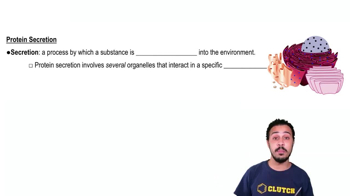Textbook Question
Hormones
a. Are produced by exocrine glands
b. Are carried to all parts of the body in blood
c. Remain at constant concentration in the blood
d. Affect only non-hormone-producing organs
1004
views
 Verified step by step guidance
Verified step by step guidance Verified video answer for a similar problem:
Verified video answer for a similar problem:



 4:1m
4:1mMaster Types of Chemical Messengers with a bite sized video explanation from Bruce Bryan
Start learning